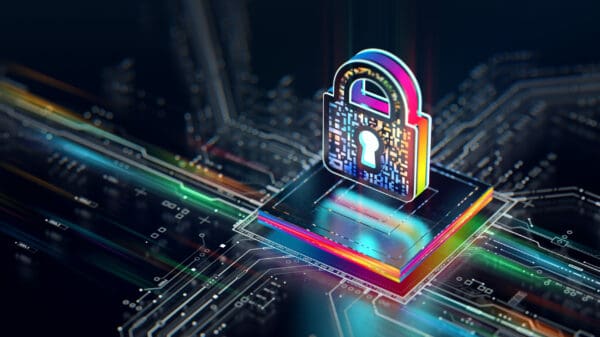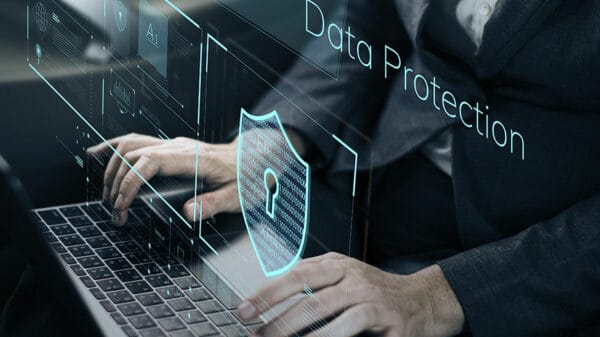Companies do a lot to grow their businesses. Preventing cyberattacks and data theft is one of those things. Irrespective of the size of a company, it is prone to some level of a cyber breach, unless the right measures are taken. Technology has taken us away from paper transactions, and much of a company’s activities are now done digitally. A large amount of information is passed through the internet per minute. This includes customer information, company records, and other kinds of assets such as e-money and cryptocurrency.
Therefore, companies and even individuals need to be more intentional about data security than ever before. Personal cybersecurity, for example, is important for several reasons: to prevent your personal information from being compromised, to prevent defamation, to prevent loss of access to your accounts, and so on. All these reasons hold true for businesses, but even more so because businesses collect the data of their customers for future use. Businesses also compile data about transactions, products, and other top-tier information that cyber attackers are often eager to lay hold on.
To protect these assets, companies have learned to create a robust cybersecurity system for themselves. Here are some of the things companies do to prevent cyberattacks and data theft:
Using strong passwords
This is one of the fundamental ways companies and individuals boost their cybersecurity systems. Passwords are like a lock and key system that ensures that only recognized individuals are granted access to platforms. From email accounts to mobile banking apps, Wi-Fi networks, WordPress accounts, and hundreds of other platforms, companies have a lot to keep away from hackers, and setting a strong password is their first layer of security.
A strong password should not follow conventional patterns like 000000, abcdef, or 12345. Otherwise, they will be easily figured out by cyber attackers. Passwords should also not be things like the date of birth of the CEO or the date the company was established, as they may also be readily guessed. At the same time, it is also risky to keep repeating the same password for all platforms. This is because, once one platform is breached by an attacker, it becomes easier for all the other platforms to be accessed. After all, the password is already known.
Most platforms recommend that users make do with passwords that are a mix of uppercase and lowercase letters, numbers, special characters, and a minimum number of characters. Since the same password should not be used across multiple platforms, and companies usually require more than one person to access a platform, they make do with features like Google Passwords, a password manager which helps to automatically save passwords into the Gmail account. Hence, no one needs to memorize the passwords as long as they are logged into the Gmail account.
Password generators are also a great tool for generating random passwords that follow no predictable order. This saves the stress of manually trying to permutate characters to create a unique password.
Securing the company’s devices and software
Companies that are big on cybersecurity also ensure that the mobile devices of the company and their employees are well-secured. Better still, such companies create policies that ensure the sharing of the company’s sensitive data using only work devices. A report by the Cybersecurity and Infrastructure Security Agency (CISA) revealed that about 44% of small businesses in America report to have been victims of cyberattacks, including those that utilized employees’ cell phones.
Cyber attackers are getting smarter by the day and often leverage on companies’ weak points in order to breach their security. This brings us to our next point on how companies work to prevent cyberattacks and data theft.
Educating employees on cybersecurity
Security-conscious companies do well to educate their employees on how they can ensure the integrity of the company is not breached. When employees are properly educated on subjects like this, they maintain a health consciousness on the importance of cybersecurity. They are also able to avoid habits that may in any way sabotage the company’s security.
Employees are taught how to rightly share data across individuals and teams, how to store information, and how to identify risk patterns. Also, employees are educated on how to keep their mobile devices safe, since they can become a tool for cybercriminals to gain access to the company’s security system. Furthermore, employees are trained to cyberattack attempts such as fishy emails, phone calls, and too-good-to-be-true internet deals.
Taking simple steps such as having a strong password, updating software regularly, disconnecting from unrecognized network media while at work, and double-checking the integrity of applications and files before downloading, go a long way to protecting a company from cyberattacks. With the advent of remote working procedures where employees utilize their home devices to carry out work duties, it becomes even more important to abide by these untold rules.
Bigger companies with recognized cybersecurity teams go the extra mile to give team members specialized education and update them on current cybersecurity trends. Team members are encouraged to take relevant courses from time to time and are sponsored to attend relevant workshops and conferences. A company may also hire a cybersecurity consultant to have an in-house workshop with the team members.
Performing regular application updates
While you may think updating applications frequently incurs a lot of data costs, security-conscious companies do not think twice before doing this. This is because working with older versions of applications can leave a company’s data susceptible to breaches by cybercriminals. Applications are updated as often as the developing company identifies a feature that could be improved upon. One of those core features is the security strength of the application. Therefore, when companies do not update applications in time, they are at risk of cyberattacks through the loopholes that the application developers have attempted to fix in the newer updates.
At the same time, companies ensure that all their devices are upgraded with technological advancements so that they are able to work efficiently with newer software updates.
Using secure internet connections
The use of insecure internet connections is one of the easiest ways cybercriminals gain access to steal data from companies. To ensure safe internet connections, companies ensure that their domains remain secure. Domain security is often a feature that comes alongside web hosting services. Companies, therefore, opt for hosting services that can provide the level of domain security they desire.
Another safety measure is for a company to purchase two domains. The first, which is the public domain, houses the public websites and webpages such as the company’s eCommerce site through which customers make transactions, the blog page, and the landing page. The second domain is made accessible only to staff members who ensure they use this internet connection when carrying out work-related services, whether on their work or personal devices.
If a company employs remote workers, they may be encouraged not to use public Wi-Fi, or to make use of a virtual private network (VPN) if they must use public networks. Using a VPN encrypts the network and hides the IP address, so hackers do not have access to it. There is also encrypted portable Wi-Fi that can be used outside of the company’s work environment.
Hiding workplace Wi-Fi networks
While putting a password on the company’s Wi-Fi network provides a layer of security, it is often not the best way to prevent cyberattacks that can lead to breaches and data thefts. Most companies hide their Wi-Fi networks to provide an extra layer of security. Therefore, company Wi-Fi networks will usually not be visible on your mobile even when you are in the same location as the company.
Companies make their Wi-Fi network invisible by setting up their router such that it keeps the name of the network hidden. This provides extra security to the strong password added to the network. It is also recommended that companies change their passwords periodically to mitigate risks and prevent cyberattack comebacks.
Deploying automated application security testing
Just like you would make periodic checks on your home, beginning from the perimeter to the major entrance to ensure no area has been bridged, companies also carry out periodic checks on their assets, information systems, and every other thing worth securing. Seeing as there is a lot to keep check of, companies save time and stress by setting up automated security testing measures.
Such automated applications detect bugs, glitches, and risks, similar to the antivirus that works on your laptop. You often do not have to do a thing to remind the antivirus, it does a background check by itself on a periodic basis and automatically notifies you once it notices a risk to your system.
Automated application security testing measures may not be able to perform rigorous security checks, but they do the basics and notify you of breaches and risk factors before they affect the company in any way. There are also several kinds of security tests that can be automated. Companies either subscribe to or purchase software that ensures this or employs the service of security companies that deploy their signature products for automated testing.
Periodic cybersecurity audits
A cybersecurity audit is intensive scrutiny of the security system of the company. Such audits go beyond the superficial checks done by automated testing software. They identify threats, analyze damages done, if any, and determine the way forward from previous attacks.
Sometimes, companies are not able to identify the access point for a cyberattack until a cybersecurity audit is performed. Before the vulnerable point is identified, companies may not be able to deploy the appropriate preventive measures against future attacks.
Limiting access and keeping sensitive data confidential
Most cyberattacks occur due to human error and carelessness on the part of those who have access to data. Therefore, companies ensure highly sensitive information is kept confidential and inaccessible to outsiders. Also, such data sets and information can only be accessed by employees who have a direct role to play on them.
Doing this keeps data dignified, minimizes the risk of breaches, and ensures that only those who have the right skill set to manage information have access to them. Exposing all employees to sensitive data sets may lead to information stuffing and could place sensitive information in the wrong hands.
Companies ensure that data is not only classified but that those who have access to them are well-educated on how to rightly manage such data.
Engaging cybersecurity experts
For the most part, the average person does not know what to do to protect their online security in order to prevent cyberattacks and data thefts. This is why there are experts in this field who can help companies achieve their goals. Just like security personnel are employed to man physical buildings, cybersecurity experts know just what to do to ensure the online safety of a company.
The role of a cybersecurity expert should not be confused with what the IT department does. While IT team members know their way around the technologies available in the company, they do not have the skill sets to identify cybersecurity threats or manage them, unless they are trained in that regard.
A cybersecurity specialist performs very specialized roles ranging from monitoring to investigating, detecting, and providing solutions to cybersecurity threats and attacks. The cybersecurity expert does work closely with the IT team as they understand the structure of the company’s technologies and can help in unraveling access points.
Depending on their size and security needs, companies either employ a full-time team of cybersecurity professionals or make do with the services of cybersecurity companies on a contractual or subscription basis.
How can you become a cybersecurity expert?
Cybersecurity is indeed a fascinating field that is loaded with potential and is projectable into the future. Like every other tech-savvy role, becoming a cybersecurity expert requires taking the right steps that will truly set you up for the role you desire. While there are no hard and fast rules, there are some key steps anyone must take to become a cybersecurity expert. These include:
Getting relevant education
To become a cybersecurity specialist, you must obtain some level of formal education. This would often mean a degree of some sort. However, because the job of a cybersecurity expert is highly specialized, it requires that you undergo some education where you are exposed to the role so you are able to take up real-life challenges.
Your education can take up any form — online courses, certificate programs, undergraduate and/or graduate degrees in cybersecurity.
If you have never had experience in cybersecurity or a similar role, you should consider an undergraduate degree in cybersecurity. If you already have some roots in tech, or you have a previous degree in a related field such as IT, computer science, mathematics, or engineering, a master’s degree in cybersecurity might be a better fit for you.
Also note that there are several programs and courses on cybersecurity you can take, depending on what you would like to specialize in. There are programs or cybersecurity engineering, cybersecurity analytics, information systems security, etc. There are also generalist programs such as St Bonaventure’s online cybersecurity master’s which aims to develop all the soft and technical skills required of a cybersecurity expert.
Obtaining industry certifications and clearances
A role like that of a cybersecurity specialist requires you to get certifications and clearances that authenticate your degree. Popular certifications include Security+ and Network+ both offered by CompTIA. There is also the Certified Ethical Hacker (CEH) certificate and the Certified Information Systems Security Professional (CISSP) certificate.
These certifications may apply only to certain specializations or can only be conferred after certain years of experience. For example, the CISSP program is designed for professionals with a minimum of five years of experience and covers topics on engineering, architecture, and management.
While certifications and clearances are not a prerequisite for getting an entry-level role in cybersecurity, they go a long way towards boosting your resume and improving your chance of getting better job offers.
When taking certifications, you should keep in mind your preferred specialization and opt for only those that best apply.
Intern in a cybersecurity role
A valid way to get yourself rolling with relevant experience is to take up an internship position. This applies after you have obtained the right education. Companies that hire cybersecurity interns are typically cybersecurity-focused companies or other companies that are large enough to maintain a cybersecurity team where you will be able to intern.
This means that getting internship positions can be quite competitive, but it is worth the shot.
Conclusion
It is important for businesses to pay special attention to cybersecurity. Amongst other things, an effective way to ensure this is to employ a cybersecurity expert. Companies can also train their employees to become cybersecurity conscious and identify looming threats.
Thanks for reading this article. If you're new here, why don't you subscribe for regular updates via RSS feed or via email. You can also subscribe by following @techsling on Twitter or becoming our fan on Facebook. Thanks for visiting!

























































































































































































